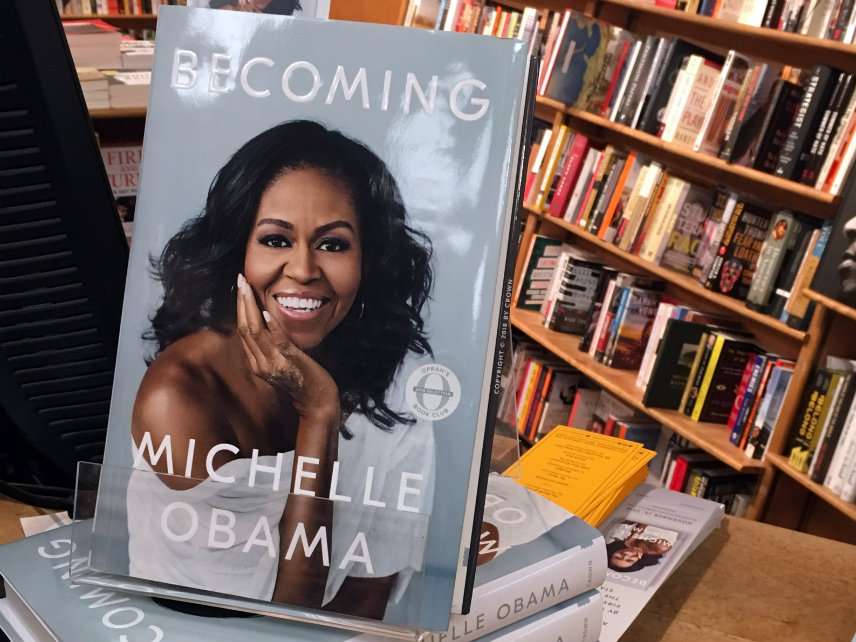The5thHorseman
Platinum Member
- Nov 22, 2022
- 12,136
- 6,574
- 918
- Banned
- #41
She went to Princeton.You neglected to say "An Idiotic, Black Woman, who for the first time in her life (since her Idiotic Husband ) was "Proud" of her country!
You?
Follow along with the video below to see how to install our site as a web app on your home screen.

Note: This feature currently requires accessing the site using the built-in Safari browser.
She went to Princeton.You neglected to say "An Idiotic, Black Woman, who for the first time in her life (since her Idiotic Husband ) was "Proud" of her country!
Eats Imperial margarine.I heard she is in line for the crown. LOL
Affirmative action.She went to Princeton.
How many hours per week have you spent watching FOX?Affirmative action.
It shows.As much as l can.

How many hours per week have you spent watching FOX?
Case closed.

Answer the question.Michelle Obama felt "the shadow of affirmative action" as an undergraduate student at Princeton University, the former first lady writes in her new book, Becoming.
Obama, who graduated in 1985, says she sometimes wondered why she had been accepted into Princeton, a majority-white school, in the first place. "It was impossible to be a black kid at a mostly white school and not feel the shadow of affirmative action," Obama writes. "You could almost read the scrutiny in the gaze of certain students and even some professors, as if they wanted to say, 'I know why you're here.'" This was often "demoralizing," Obama says, while acknowledging she "was just imagining some of it."
"It planted a seed of doubt. Was I here merely as part of some social experiment?" she asks.
The former first lady says she gradually realized that affirmative action wasn't the only way the school filled quotas. "As minorities, we were the most visible, but it became clear that special dispensations were made to admit all kinds of students whose grades or accomplishments might not measure up to the acknowledged standard," she writes. Obama cites student-athletes, as well as the "legacy kids" who attended Princeton like their "fathers and grandfathers" before them, "or whose families had funded the building of a dorm or a library."

Michelle Obama Felt 'the Shadow of Affirmative Action' as Princeton Undergrad
Her experience is a good example of why affirmative action policies are a bad idea.reason.com
Big Mike Obama. First transvestite Presidential nominee.
Liberacein... protege ?What do you call this unmanly thing?
Michelle Obama is a non-starter, after her remarks that her husband's nomination was the very first time that she was ever proud of her country.I have to wonder if Susan Rice or perhaps Michele Obama will be one of the replacements for Joe Biden since Biden will not be the no candidate of the presidency in 2024, no matter what he is saying now. Joey is simply not capable of being on the same stage of Trump in a debate, and he is certainly NOT suitable for being the President of the United States of America.
Biden didn't win. He lost in a landslide.Biden is not capable in a debate - as in the guy who beat your douchebag so badly that the orange loser is still whining about it even after two years? That guy?
Which is why he's the president.Biden didn't win. He lost in a landslide.